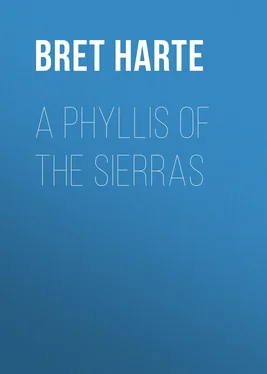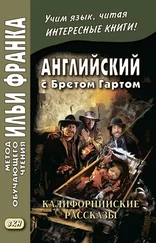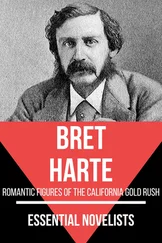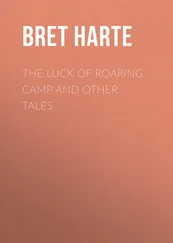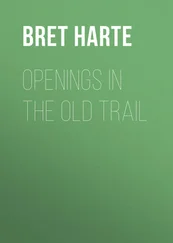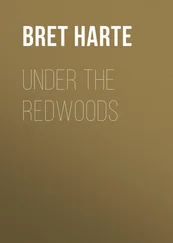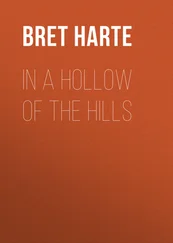Bret Harte - A Phyllis of the Sierras
Здесь есть возможность читать онлайн «Bret Harte - A Phyllis of the Sierras» — ознакомительный отрывок электронной книги совершенно бесплатно, а после прочтения отрывка купить полную версию. В некоторых случаях можно слушать аудио, скачать через торрент в формате fb2 и присутствует краткое содержание. Жанр: foreign_sf, literature_19, foreign_antique, foreign_prose, на английском языке. Описание произведения, (предисловие) а так же отзывы посетителей доступны на портале библиотеки ЛибКат.
- Название:A Phyllis of the Sierras
- Автор:
- Жанр:
- Год:неизвестен
- ISBN:нет данных
- Рейтинг книги:3 / 5. Голосов: 1
-
Избранное:Добавить в избранное
- Отзывы:
-
Ваша оценка:
- 60
- 1
- 2
- 3
- 4
- 5
A Phyllis of the Sierras: краткое содержание, описание и аннотация
Предлагаем к чтению аннотацию, описание, краткое содержание или предисловие (зависит от того, что написал сам автор книги «A Phyllis of the Sierras»). Если вы не нашли необходимую информацию о книге — напишите в комментариях, мы постараемся отыскать её.
A Phyllis of the Sierras — читать онлайн ознакомительный отрывок
Ниже представлен текст книги, разбитый по страницам. Система сохранения места последней прочитанной страницы, позволяет с удобством читать онлайн бесплатно книгу «A Phyllis of the Sierras», без необходимости каждый раз заново искать на чём Вы остановились. Поставьте закладку, и сможете в любой момент перейти на страницу, на которой закончили чтение.
Интервал:
Закладка:
Bret Harte
A Phyllis of the Sierras
CHAPTER I
Where the great highway of the Sierras nears the summit, and the pines begin to show sterile reaches of rock and waste in their drawn-up files, there are signs of occasional departures from the main road, as if the weary traveller had at times succumbed to the long ascent, and turned aside for rest and breath again. The tired eyes of many a dusty passenger on the old overland coach have gazed wistfully on those sylvan openings, and imagined recesses of primeval shade and virgin wilderness in their dim perspectives. Had he descended, however, and followed one of these diverging paths, he would have come upon some rude wagon track, or “logslide,” leading from a clearing on the slope, or the ominous saw-mill, half hidden in the forest it was slowly decimating. The woodland hush might have been broken by the sound of water passing over some unseen dam in the hollow, or the hiss of escaping steam and throb of an invisible engine in the covert.
Such, at least, was the experience of a young fellow of five-and-twenty, who, knapsack on back and stick in hand, had turned aside from the highway and entered the woods one pleasant afternoon in July. But he was evidently a deliberate pedestrian, and not a recent deposit of the proceeding stage-coach; and although his stout walking-shoes were covered with dust, he had neither the habitual slouch and slovenliness of the tramp, nor the hurried fatigue and growing negligence of an involuntary wayfarer. His clothes, which were strong and serviceable, were better fitted for their present usage than the ordinary garments of the Californian travellers, which were too apt to be either above or below their requirements. But perhaps the stranger’s greatest claim to originality was the absence of any weapon in his equipment. He carried neither rifle nor gun in his hand, and his narrow leathern belt was empty of either knife or revolver.
A half-mile from the main road, which seemed to him to have dropped out of sight the moment he had left it, he came upon a half-cleared area, where the hastily-cut stumps of pines, of irregular height, bore an odd resemblance to the broken columns of some vast and ruined temple. A few fallen shafts, denuded of their bark and tessellated branches, sawn into symmetrical cylinders, lay beside the stumps, and lent themselves to the illusion. But the freshly-cut chips, so damp that they still clung in layers to each other as they had fallen from the axe, and the stumps themselves, still wet and viscous from their drained life-blood, were redolent of an odor of youth and freshness.
The young man seated himself on one of the logs and deeply inhaled the sharp balsamic fragrance—albeit with a slight cough and a later hurried respiration. This, and a certain drawn look about his upper lip, seemed to indicate, in spite of his strength and color, some pulmonary weakness. He, however, rose after a moment’s rest with undiminished energy and cheerfulness, readjusted his knapsack, and began to lightly pick his way across the fallen timber. A few paces on, the muffled whir of machinery became more audible, with the lazy, monotonous command of “Gee thar,” from some unseen ox-driver. Presently, the slow, deliberately-swaying heads of a team of oxen emerged from the bushes, followed by the clanking chain of the “skids” of sawn planks, which they were ponderously dragging with that ostentatious submissiveness peculiar to their species. They had nearly passed him when there was a sudden hitch in the procession. From where he stood he could see that a projecting plank had struck a pile of chips and become partly imbedded in it. To run to the obstruction and, with a few dexterous strokes and the leverage of his stout stick, dislodge the plank was the work not only of the moment but of an evidently energetic hand. The teamster looked back and merely nodded his appreciation, and with a “Gee up! Out of that, now!” the skids moved on.
“Much obliged, there!” said a hearty voice, as if supplementing the teamster’s imperfect acknowledgment.
The stranger looked up. The voice came from the open, sashless, shutterless window of a rude building—a mere shell of boards and beams half hidden in the still leafy covert before him. He had completely overlooked it in his approach, even as he had ignored the nearer throbbing of the machinery, which was so violent as to impart a decided tremor to the slight edifice, and to shake the speaker so strongly that he was obliged while speaking to steady himself by the sashless frame of the window at which he stood. He had a face of good-natured and alert intelligence, a master’s independence and authority of manner, in spite of his blue jean overalls and flannel shirt.
“Don’t mention it,” said the stranger, smiling with equal but more deliberate good-humor. Then, seeing that his interlocutor still lingered a hospitable moment in spite of his quick eyes and the jarring impatience of the machinery, he added hesitatingly, “I fancy I’ve wandered off the track a bit. Do you know a Mr. Bradley—somewhere here?”
The stranger’s hesitation seemed to be more from some habitual conscientiousness of statement than awkwardness. The man in the window replied, “I’m Bradley.”
“Ah! Thank you: I’ve a letter for you—somewhere. Here it is.” He produced a note from his breast-pocket. Bradley stooped to a sitting posture in the window. “Pitch it up.” It was thrown and caught cleverly. Bradley opened it, read it hastily, smiled and nodded, glanced behind him as if to implore further delay from the impatient machinery, leaned perilously from the window, and said,—
“Look here! Do you see that silver-fir straight ahead?”
“Yes.”
“A little to the left there’s a trail. Follow it and skirt along the edge of the canyon until you see my house. Ask for my wife—that’s Mrs. Bradley—and give her your letter. Stop!” He drew a carpenter’s pencil from his pocket, scrawled two or three words across the open sheet and tossed it back to the stranger. “See you at tea! Excuse me—Mr. Mainwaring—we’re short-handed—and—the engine—” But here he disappeared suddenly.
Without glancing at the note again, the stranger quietly replaced it in his pocket, and struck out across the fallen trunks towards the silver-fir. He quickly found the trail indicated by Bradley, although it was faint and apparently worn by a single pair of feet as a shorter and private cut from some more travelled path. It was well for the stranger that he had a keen eye or he would have lost it; it was equally fortunate that he had a mountaineering instinct, for a sudden profound deepening of the blue mist seen dimly through the leaves before him caused him to slacken his steps. The trail bent abruptly to the right; a gulf fully two thousand feet deep was at his feet! It was the Great Canyon.
At the first glance it seemed so narrow that a rifle-shot could have crossed its tranquil depths; but a second look at the comparative size of the trees on the opposite mountain convinced him of his error. A nearer survey of the abyss also showed him that instead of its walls being perpendicular they were made of successive ledges or terraces to the valley below. Yet the air was so still, and the outlines so clearly cut, that they might have been only the reflections of the mountains around him cast upon the placid mirror of a lake. The spectacle arrested him, as it arrested all men, by some occult power beyond the mere attraction of beauty or magnitude; even the teamster never passed it without the tribute of a stone or broken twig tossed into its immeasurable profundity.
Reluctantly leaving the spot, the stranger turned with the trail that now began to skirt its edge. This was no easy matter, as the undergrowth was very thick, and the foliage dense to the perilous brink of the precipice. He walked on, however, wondering why Bradley had chosen so circuitous and dangerous a route to his house, which naturally would be some distance back from the canyon. At the end of ten minutes’ struggling through the “brush,” the trail became vague, and, to all appearances, ended. Had he arrived? The thicket was as dense as before; through the interstices of leaf and spray he could see the blue void of the canyon at his side, and he even fancied that the foliage ahead of him was more symmetrical and less irregular, and was touched here and there with faint bits of color. To complete his utter mystification, a woman’s voice, very fresh, very youthful, and by no means unmusical, rose apparently from the circumambient air. He looked hurriedly to the right and left, and even hopelessly into the trees above him.
Читать дальшеИнтервал:
Закладка:
Похожие книги на «A Phyllis of the Sierras»
Представляем Вашему вниманию похожие книги на «A Phyllis of the Sierras» списком для выбора. Мы отобрали схожую по названию и смыслу литературу в надежде предоставить читателям больше вариантов отыскать новые, интересные, ещё непрочитанные произведения.
Обсуждение, отзывы о книге «A Phyllis of the Sierras» и просто собственные мнения читателей. Оставьте ваши комментарии, напишите, что Вы думаете о произведении, его смысле или главных героях. Укажите что конкретно понравилось, а что нет, и почему Вы так считаете.
